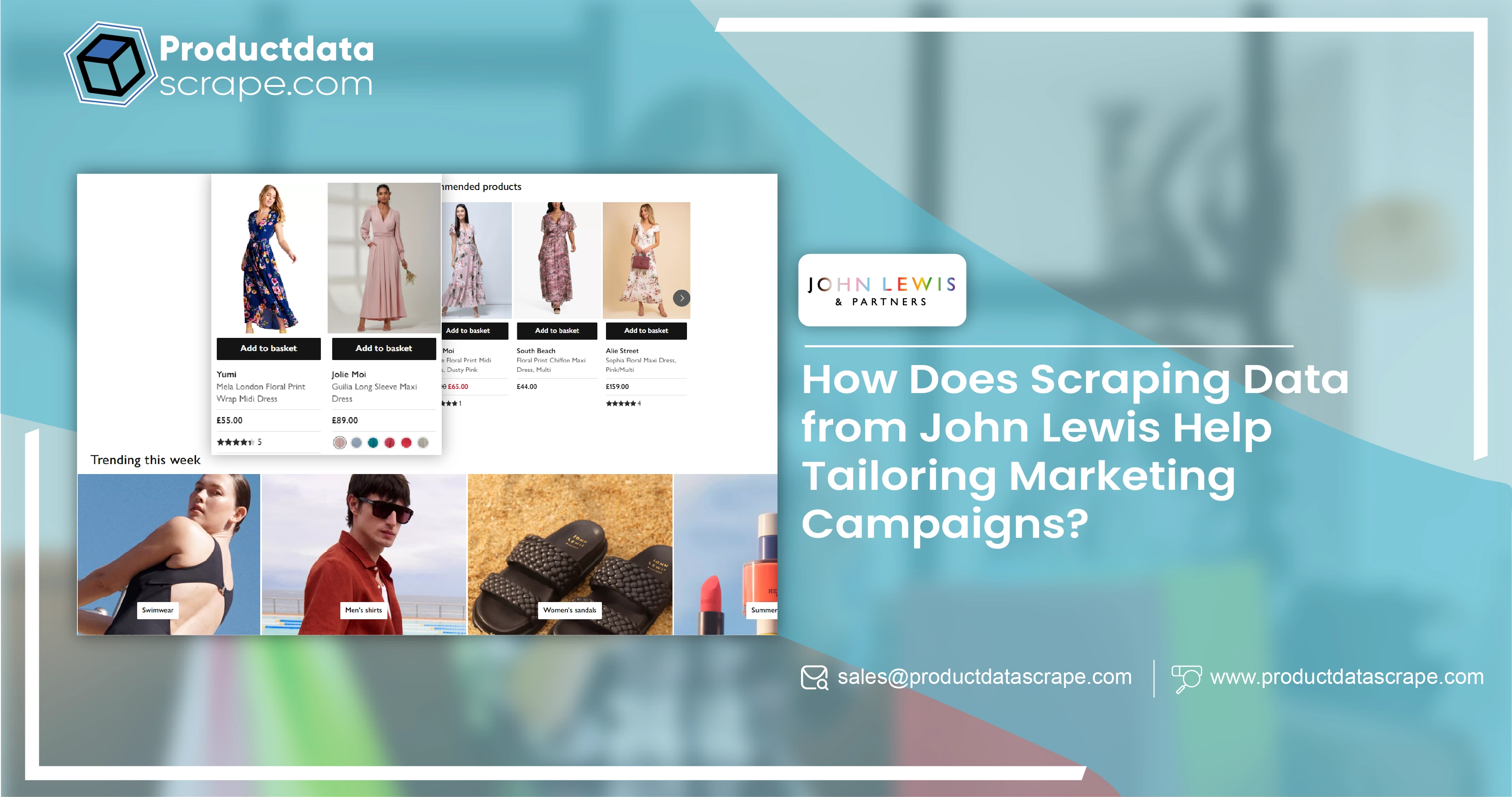
In today's retail landscape, e-commerce data scraping has become increasingly prevalent as businesses seek to gain a competitive advantage and understand consumer behavior. John Lewis, a renowned UK department store chain, is a prime target for data collection due to its wide range of products and established market presence. Scraping data from John Lewis can provide valuable insights into customer preferences, pricing trends, and competitor strategies.
E-commerce data extraction allows businesses to track market trends, monitor competitor pricing, and optimize pricing strategies. By analyzing collected data, businesses can identify opportunities for product innovation, tailor marketing campaigns to specific customer segments, and enhance overall customer satisfaction.
However, ethical considerations must be considered when scraping data from John Lewis or any other website. Businesses must ensure compliance with terms of service, avoid overloading servers, and respect user privacy. By approaching e-commerce data scraping services ethically and responsibly, businesses can leverage the insights gained from extracting John Lewis data to drive growth and success in the competitive retail landscape.
Why Scrape Data from John Lewis?
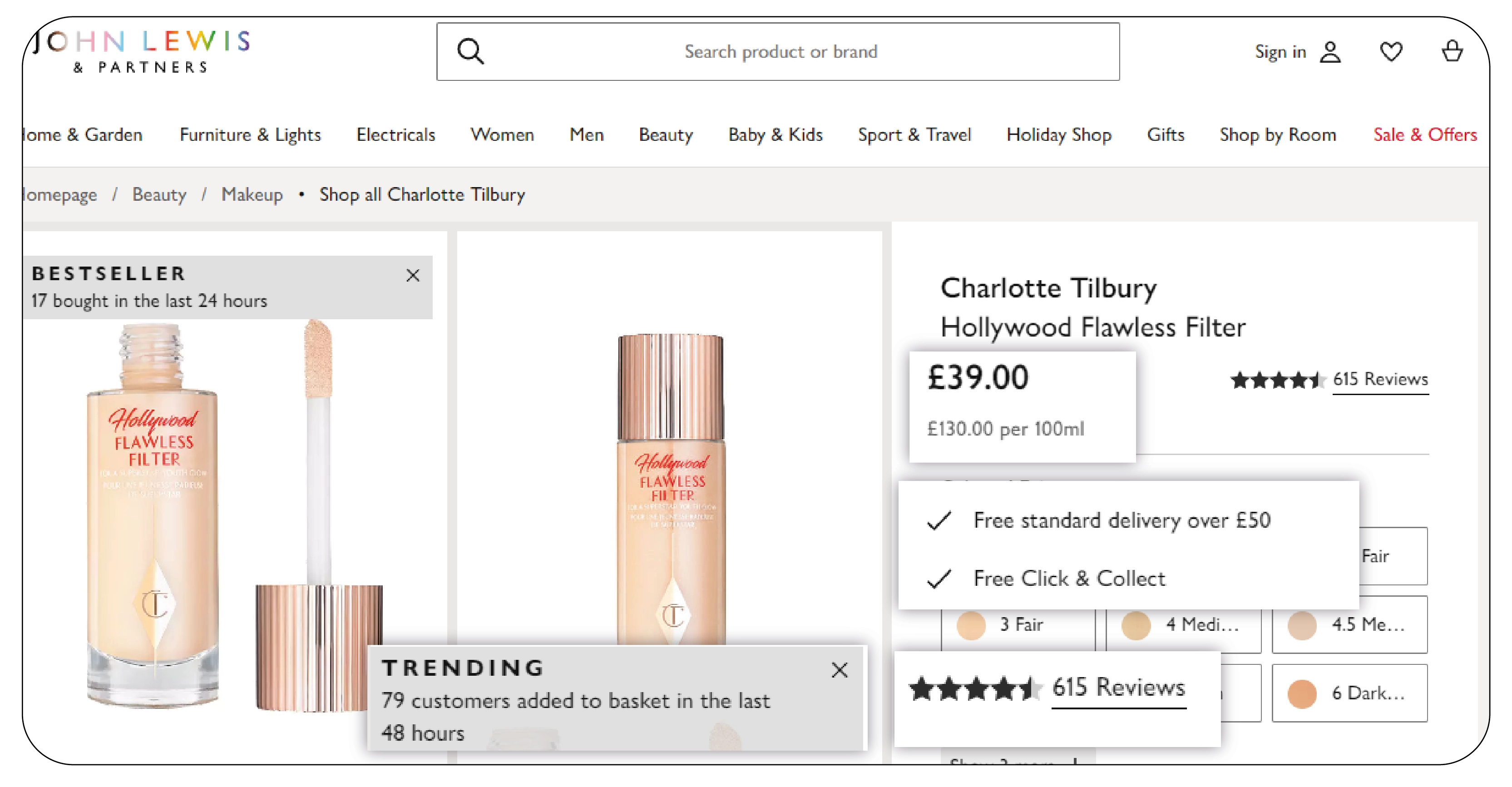
Extracting data from John Lewis provides valuable insights into market trends, competitor strategies, and customer behavior, enhancing business strategies.
1. Competitive Analysis: Gathering product data, pricing information, and customer reviews from John Lewis using an e-commerce data scraper can provide valuable insights into competitors' strategies. Businesses can analyze this data to identify critical trends, assess their competitive position, and make informed pricing and product offerings decisions.
2. Market Research: Collecting data from John Lewis can help businesses understand market trends, consumer preferences, and the popularity of different products. This information can be used to identify new opportunities, tailor marketing campaigns, and optimize product development.
3. Price Monitoring: By scraping pricing data from John Lewis, businesses can track price changes over time and compare them to competitors. It can help businesses adjust pricing strategies to remain competitive and maximize profits.
4. Product Development: Analyzing product descriptions, specifications, and customer reviews from John Lewis using retail data scraping services can provide valuable insights into consumer preferences and unmet needs. This information can be used to develop new products or improve existing ones.
Role of Scraping Data from John Lewis in Tailoring Marketing Campaigns & Product Development
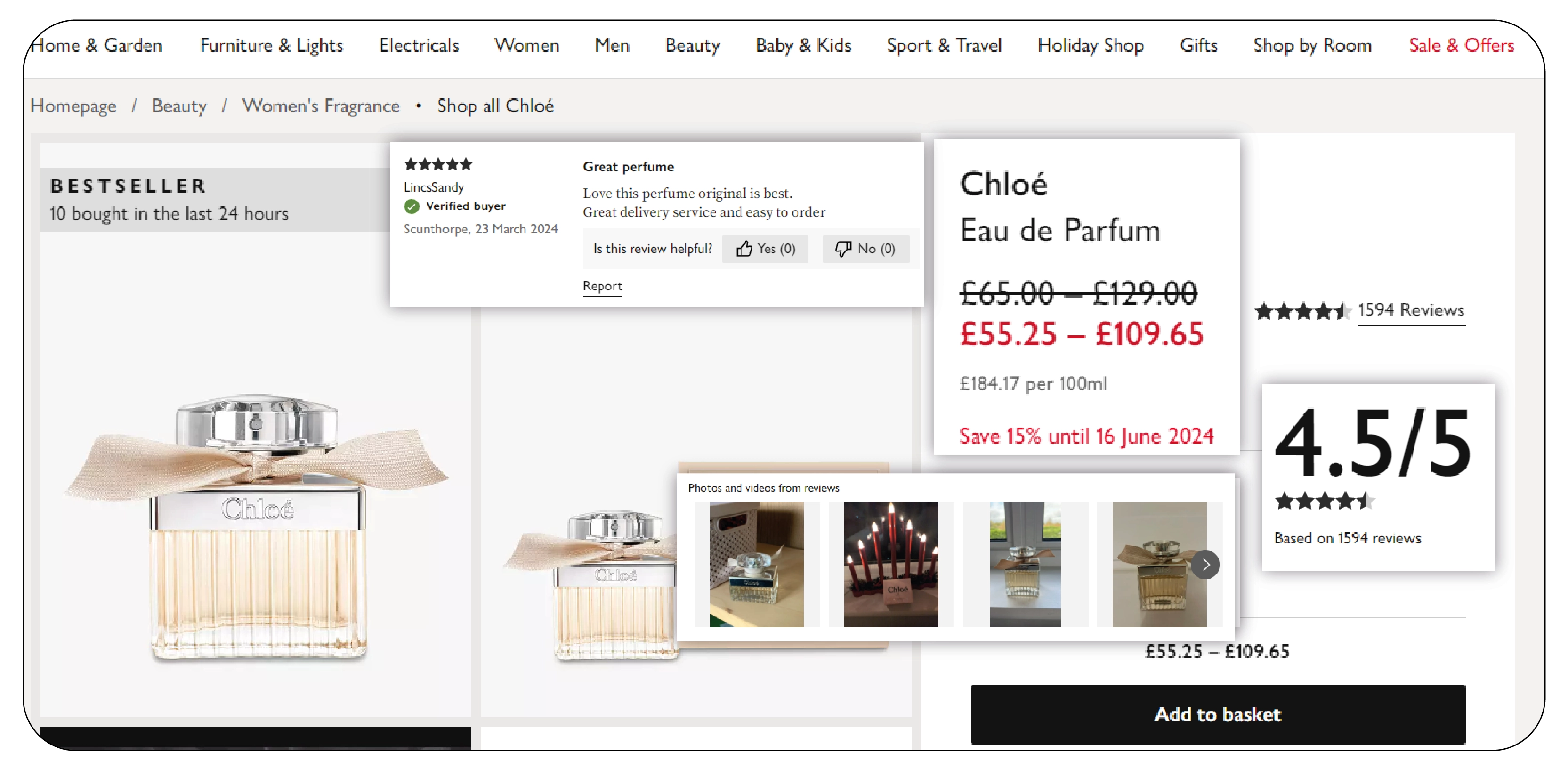
Scraping data from John Lewis can significantly benefit businesses in tailoring marketing campaigns and enhancing product development strategies. By analyzing data on customer preferences, purchasing behaviors, and product reviews gained from John Lewis's website, businesses can gain valuable insights into what resonates with their target audience.
This data can personalize marketing campaigns, ensuring relevant and engaging messages. For example, understanding which products are popular among customers can help businesses promote similar items to drive sales. Additionally, analyzing customer feedback and reviews can provide ideas for product improvements or new product development, aligning offerings more closely with customer needs and preferences.
Overall, John Lewis dataset empowers businesses to make data-driven decisions, optimizing their marketing efforts and product offerings to better meet their customers' needs and desires.
How to Scrape Data from John Lewis?
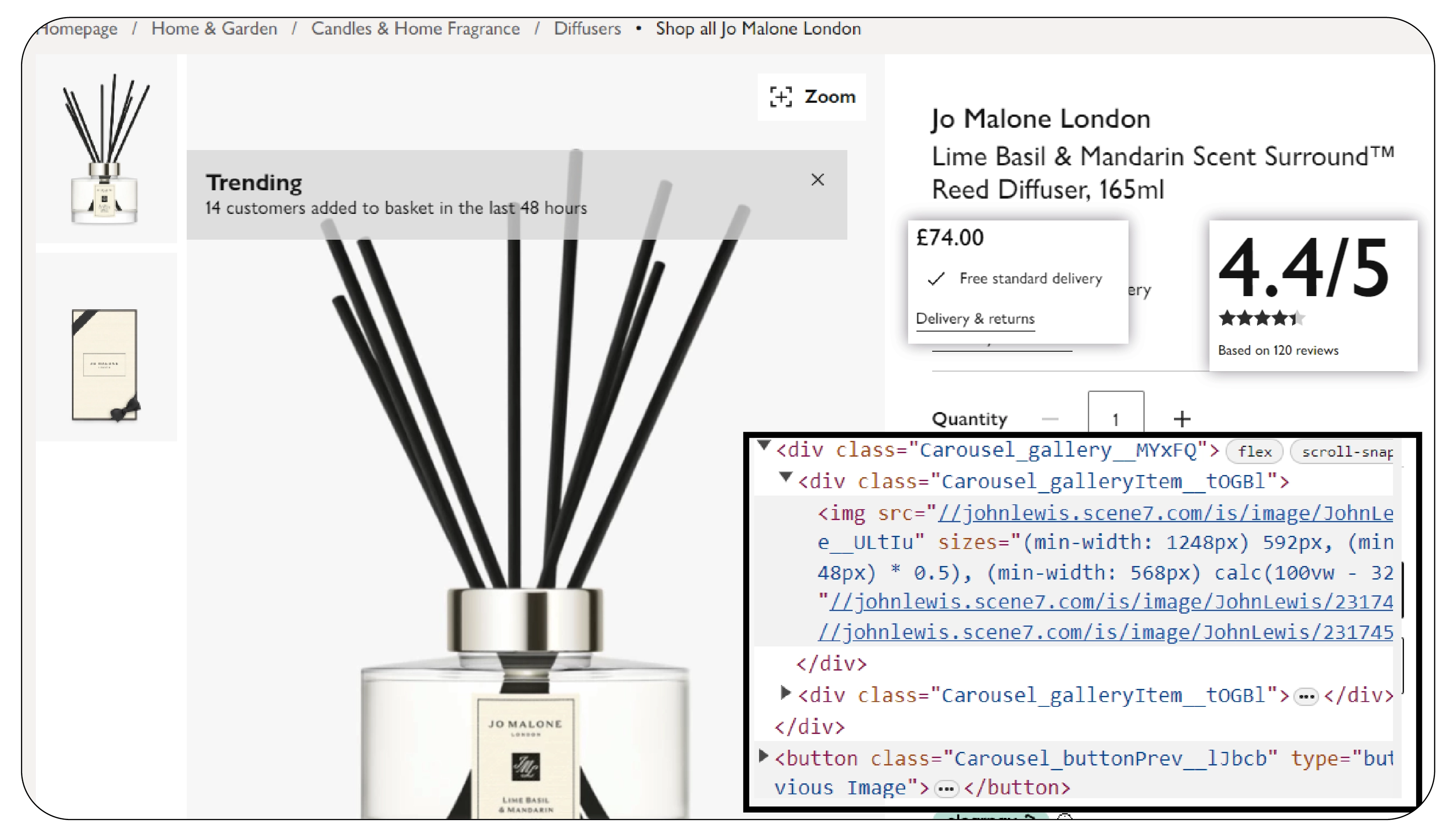
Learn how to extract valuable insights from John Lewis by mastering the art of collecting data from their website.
Choose a Scraping Tool:
Several tools are available for collectingdata from websites, including John Lewis. Popular options include BeautifulSoup, Scrapy, and Selenium. Choose a tool that best suits your needs and programming skills.
Identify the Data:
Decide what data you want to get from John Lewis. It could include product names, descriptions, prices, customer reviews, and other relevant information.
Set Up Your Scraper:
If you're using BeautifulSoup or Scrapy, you must write a script specifying the URLs to collect and the data to extract. If you're using Selenium, you can automate the website's navigation and extract data.
Run Your Scraper:
Once your scraper is set up, run it to start collecting data from John Lewis. This process may take some time, depending on how much data you're scraping.
Store and Analyze the Data:
After scraping data from John Lewis, store it in an easy-to-analyse format, such as a CSV file or a database. Use this data to gain insights into market trends, pricing strategies, and customer preferences.
Ethical Considerations
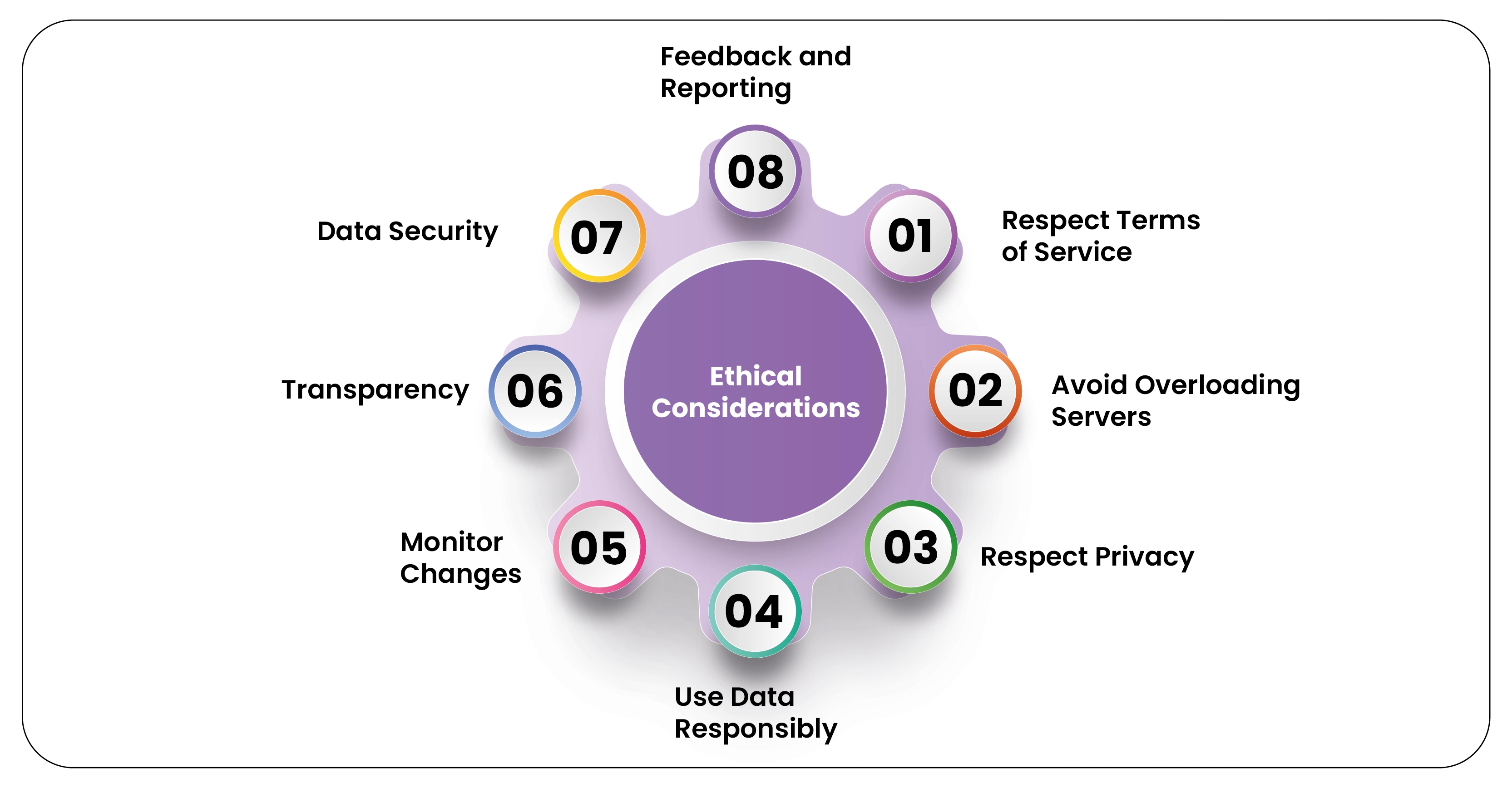
When engaging in data scraping from John Lewis or any website, it's crucial to uphold ethical standards. Here are key considerations:
Respect Terms of Service: Review John Lewis's terms of service before the process. Some websites explicitly prohibit it in their terms. Complying with these terms is essential to avoid legal issues.
Avoid Overloading Servers: Ensure your process operates at a reasonable pace. Rapid or excessive requests can overload John Lewis's servers, potentially leading to IP address blocks or other restrictions.
Respect Privacy: Avoid extracting personal or sensitive information, such as customer names, contact details, or payment information. This practice ensures compliance with privacy laws and protects individuals' privacy.
Use Data Responsibly:
Utilize scraped data responsibly and ethically.
Ensure compliance with relevant laws and regulations, such as data protection and intellectual property laws.
Avoid using the data for malicious purposes or in ways that could harm individuals or the company.
Monitor Changes: Websites frequently update their structure and policies. Stay informed about any changes to John Lewis's website or terms of service that may impact your activities.
Transparency: Be transparent about your data scraping activities. If you're using data for research or analysis, disclose this information appropriately to maintain trust and credibility.
Data Security: Implement measures to secure the data, including encryption, access controls, and regular backups. Protecting the data from unauthorized access or breaches is essential.
Feedback and Reporting: If you encounter issues or believe your activities may be causing problems, provide feedback to John Lewis. Reporting issues can help improve website functionality and maintain a positive relationship with the website owner.
Adhering to these principles allows you to ethically and responsibly scrape data from John Lewis or any website.
Conclusion: Scraping data from John Lewis can provide businesses with valuable insights into market trends, pricing strategies, and customer preferences. By following the steps outlined in this guide and considering the ethical implications, businesses can collect data from John Lewis effectively and responsibly. This data can inform business decisions, improve marketing strategies, and drive growth and profitability.
At Product Data Scrape, ethical principles are central to our operations. Whether it's Competitor Price Monitoring Services or Mobile App Data Scraping, transparency and integrity define our approach. With offices spanning multiple locations, we offer customized solutions, striving to surpass client expectations and foster success in data analytics.





































.webp)






